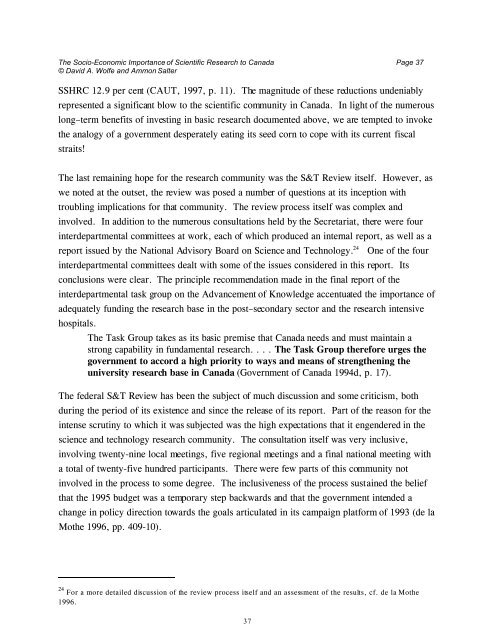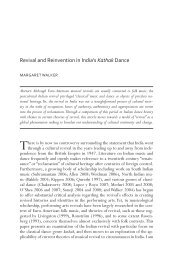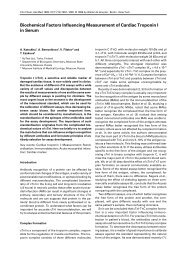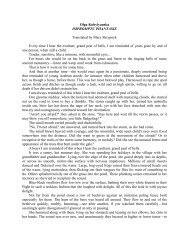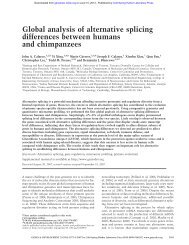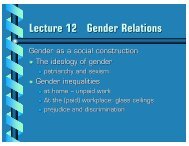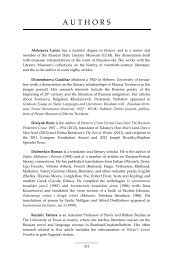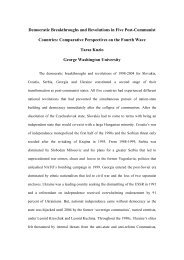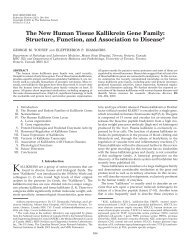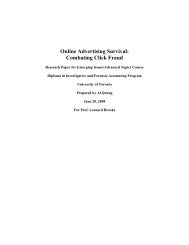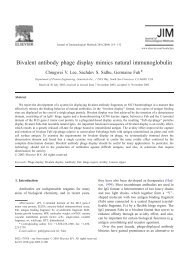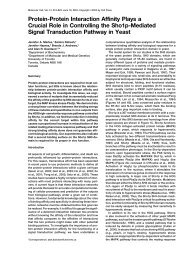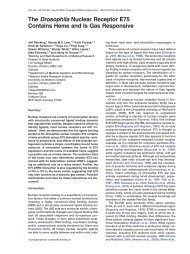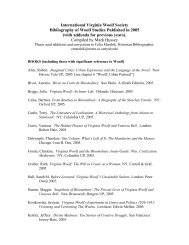The Socio-Economic Importance of Scientific Research To Canada
The Socio-Economic Importance of Scientific Research To Canada
The Socio-Economic Importance of Scientific Research To Canada
You also want an ePaper? Increase the reach of your titles
YUMPU automatically turns print PDFs into web optimized ePapers that Google loves.
<strong>The</strong> <strong>Socio</strong>-<strong>Economic</strong> <strong>Importance</strong> <strong>of</strong> <strong>Scientific</strong> <strong>Research</strong> to <strong>Canada</strong> Page 37© David A. Wolfe and Ammon SalterSSHRC 12.9 per cent (CAUT, 1997, p. 11). <strong>The</strong> magnitude <strong>of</strong> these reductions undeniablyrepresented a significant blow to the scientific community in <strong>Canada</strong>. In light <strong>of</strong> the numerouslong–term benefits <strong>of</strong> investing in basic research documented above, we are tempted to invokethe analogy <strong>of</strong> a government desperately eating its seed corn to cope with its current fiscalstraits!<strong>The</strong> last remaining hope for the research community was the S&T Review itself. However, aswe noted at the outset, the review was posed a number <strong>of</strong> questions at its inception withtroubling implications for that community. <strong>The</strong> review process itself was complex andinvolved. In addition to the numerous consultations held by the Secretariat, there were fourinterdepartmental committees at work, each <strong>of</strong> which produced an internal report, as well as areport issued by the National Advisory Board on Science and Technology. 24 One <strong>of</strong> the fourinterdepartmental committees dealt with some <strong>of</strong> the issues considered in this report. Itsconclusions were clear. <strong>The</strong> principle recommendation made in the final report <strong>of</strong> theinterdepartmental task group on the Advancement <strong>of</strong> Knowledge accentuated the importance <strong>of</strong>adequately funding the research base in the post–secondary sector and the research intensivehospitals.<strong>The</strong> Task Group takes as its basic premise that <strong>Canada</strong> needs and must maintain astrong capability in fundamental research. . . . <strong>The</strong> Task Group therefore urges thegovernment to accord a high priority to ways and means <strong>of</strong> strengthening theuniversity research base in <strong>Canada</strong> (Government <strong>of</strong> <strong>Canada</strong> 1994d, p. 17).<strong>The</strong> federal S&T Review has been the subject <strong>of</strong> much discussion and some criticism, bothduring the period <strong>of</strong> its existence and since the release <strong>of</strong> its report. Part <strong>of</strong> the reason for theintense scrutiny to which it was subjected was the high expectations that it engendered in thescience and technology research community. <strong>The</strong> consultation itself was very inclusive,involving twenty-nine local meetings, five regional meetings and a final national meeting witha total <strong>of</strong> twenty-five hundred participants. <strong>The</strong>re were few parts <strong>of</strong> this community notinvolved in the process to some degree. <strong>The</strong> inclusiveness <strong>of</strong> the process sustained the beliefthat the 1995 budget was a temporary step backwards and that the government intended achange in policy direction towards the goals articulated in its campaign platform <strong>of</strong> 1993 (de laMothe 1996, pp. 409-10).24 For a more detailed discussion <strong>of</strong> the review process itself and an assessment <strong>of</strong> the results, cf. de la Mothe1996.37


